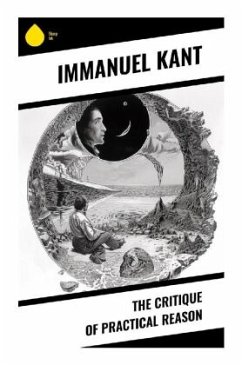
The Ethical Principles of Immanuel Kant

PAYBACK Punkte
0 °P sammeln!
In "The Ethical Principles of Immanuel Kant," the author meticulously articulates his groundbreaking moral philosophy, centering on the concepts of duty, autonomy, and universality. With a distinctive blend of dense philosophical reasoning and accessible prose, Kant explores the imperative of categorical imperatives that govern ethical behavior, positioning morality not as a consequence of consequences but as adherence to duty itself. This work emerges within the Enlightenment context, where reason and individual agency were championed, marking a significant shift from previous moral framework...
In "The Ethical Principles of Immanuel Kant," the author meticulously articulates his groundbreaking moral philosophy, centering on the concepts of duty, autonomy, and universality. With a distinctive blend of dense philosophical reasoning and accessible prose, Kant explores the imperative of categorical imperatives that govern ethical behavior, positioning morality not as a consequence of consequences but as adherence to duty itself. This work emerges within the Enlightenment context, where reason and individual agency were championed, marking a significant shift from previous moral frameworks dominated by religious dogma or consequentialist thinking. Immanuel Kant, a pivotal figure in Western philosophy, crafted this text as part of his larger project to reconcile rational thought with ethical considerations. Born in 1724 in Königsberg, Prussia, Kant's experiences amid Enlightenment debates shaped his philosophical inquiries. His work reflects a deep commitment to reason and the belief that moral laws should stem from rationality, which was revolutionary during his time and has continued to inspire ethical discussions to this day. This book is a must-read for anyone interested in the foundations of modern morality and ethical theory. Kant's exploration of duty and moral law will challenge readers to reconsider their ethical assumptions and cultivate a deeper understanding of ethical reflection, making it essential for scholars, students, and anyone intrigued by the complexities of human ethics.













